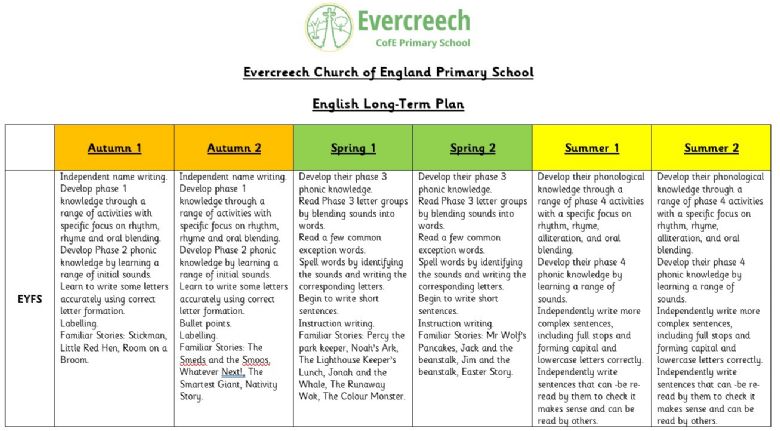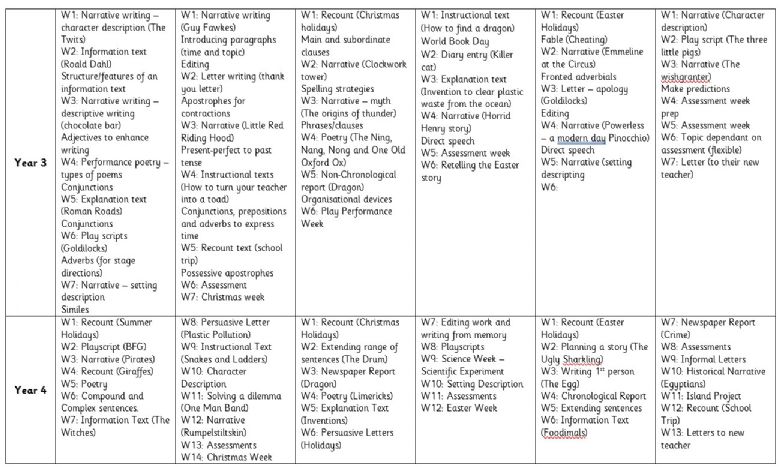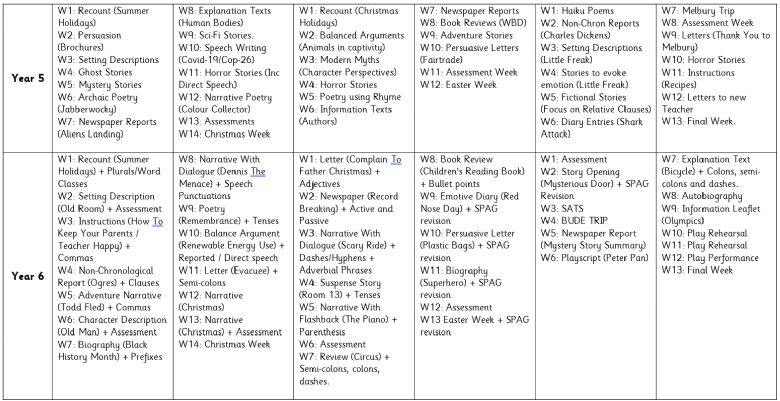English
English Curriculum Aims
English has a pre-eminent place in education and in society. A high-quality education in English will teach pupils to speak and write fluently so that they can communicate their ideas and emotions to others, and through their reading and listening, others can communicate with them. Through reading in particular, pupils have a chance to develop culturally, emotionally, intellectually, socially and spiritually. Literature, especially, plays a key role in such development. Reading also enables pupils both to acquire knowledge and to build on what they already know. All the skills of language are essential to participating fully as a member of society; pupils who do not learn to speak, read and write fluently and confidently are effectively disenfranchised.
Source: National Curriculum, 2014
We have high expectations of all children and provide them with a balanced and exciting curriculum of learning opportunities to develop their subject knowledge and expertise. Regular monitoring and assessment opportunities ensure that every child achieves their full potential.
Our curriculum implementation:
To achieve our results, we focus on the following key areas as part of our curriculum:
- phonics
- spelling
- reading
- vocabulary development
- development of reading comprehension skills
- writing
- oracy
- handwriting
- interventions and support for children with EAL
English Long Term Curriculum Planning



Phonics
We use the DfE validated Unlocking Letters and Sounds for our phonics provision, supported by Ransom Reading Stars decodable reading books which are fully aligned to the scheme so as to ensure fidelity. Daily lessons follow a clearly structured and sequenced progression and start at the very beginning of Reception and continue into Year Two.
Please see the Phonics page for more detailed information on this core area.

